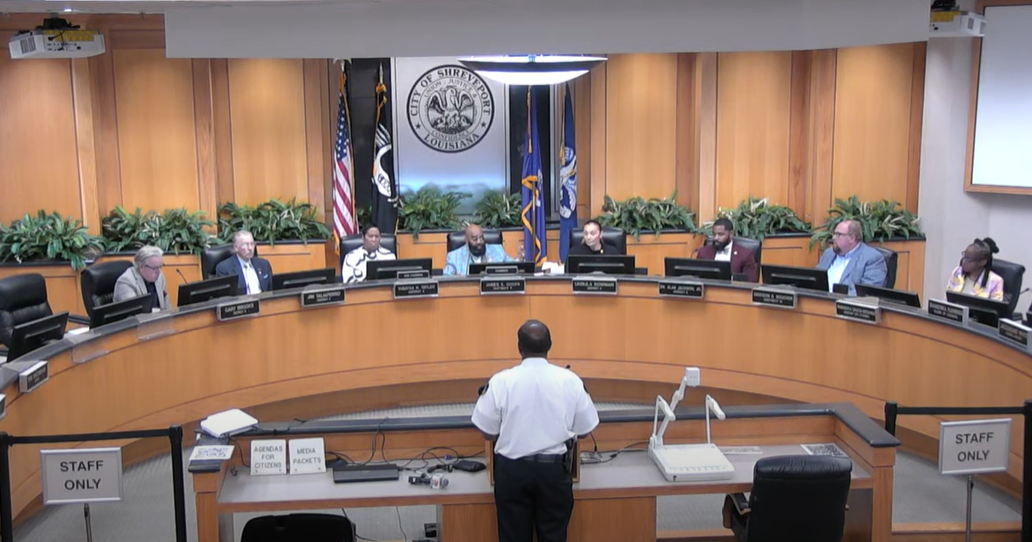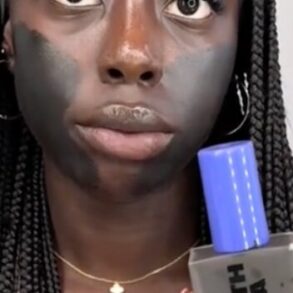
SHREVEPORT, La. – Shreveport City Council Chairman James Green, at the prodding of Councilman Jim Taliaferro, apologized publicly Tuesday for what some considered racially divisive remarks he made at a meeting late last month.
That discussion also included additional accusations made by Green during the same meeting that he was the subject of a traffic stop by Shreveport police because he was “driving while black.”
Taliaferro, while reading a prepared statement at Tuesday’s meeting, said his comments were not related to the reason for the traffic stop. Instead, Taliaferro focused on the racial tone of the Green’s comments.
Green insinuated, Taliaferro said, that people of a certain race were responsible for the downfall of Shreveport — and indicated he was stopped by police “because of the color of your skin.”
Taliaferro called the accusations “baseless and irresponsible and disrespectful” to the men and women in uniform. He called on Green to apologize to them.
But Taliaferro said again he was not commenting on the traffic stop itself, but Green’s public comments.
Councilman Grayson Boucher joined in the discussion and agreed it was certain things Green said that prompted numerous calls from his constituents. Specially, Boucher said the takeaway many got from what Green said was that certain black council members have not “messed up the city.” Instead, it is the white council members to blame.
Boucher pointed out the city is about 60% black and 40% white, but his district is about 90% white. “So, you’re saying 90% of my district are the problem.”
He also recalled a statement Green had made previously that his mother told him the only two things he needed to afraid of was a “white woman and the police.” Boucher took exception to that, saying his wife is white and a police officer.
It’s comments such as that which have fueled talk in recent years about the de-annexation of the southeastern part of the city. It’s not feasible, Boucher said, but still his callers say, “If they don’t want us why are we here?”
“We are better as a whole,” Boucher said in trying to bring unity. “We have to come together, and we need leadership on this council to try and come together.”
Green admitted to making the remarks but explained he was referencing the racial makeup of the previous council – when it was 4-3 white over black – rather than now as 4-3 black over white. It’s different, he said, as some people are “nervous we were going to mess stuff up because it was four of us.”
Then Green said he did not carry any ill will toward council members despite what was said at the meeting. When the meeting was over, “it was over,” he said.
Green turned to the audience to address “the citizens of Shreveport.”
“I was not talking about you, but talking about the makeup of this board and how it used to be and how the numbers were changed. We were not going to do anything to hurt this city. Maybe it didn’t come out that way but that’s what I meant,” Green said.
As for the traffic stop, Green said the video shown on television was not the whole video, and he said he talked to Mayor Tom Arceneaux about that. Green had asked Monday to add an executive session to the agenda to discuss police officer body cameras without giving any additional information about the reason. His request was denied.
Green said he did not hold a news conference about the traffic stop because he didn’t want to publicize it; however, he said the video of the one officer’s body camera is not the whole story.
In a video obtained by KTBS, Green is seen referring to himself as a “certain person” and questioned the reason for the stop. He also produced a state police uniform patch in his billfold and a separate badge and card from the city marshal’s office. He said the items were given to “certain people.”
Green maintained at Tuesday’s meeting the stop was “profiling” because he was stopped in a black neighborhood and two blocks from his house. He claimed he was “not at liberty” to go into details after talking with the mayor.
Green then asked Chief Wayne Smith to come up to the podium; one, to verify he contacted Smith within 24 hours of the traffic stop; and two, that the police department does not own any window tint meters.
Smith agreed with Green that it would be difficult for police officers to determine if a vehicle’s window tint was too dark if they approached from the rear. As a general rule, Smith said, the determination is made on whether an officer can clearly see the driver by either the front or side windows.
At that point, Councilwoman Ursula Bowman called for a point of order to end the discussion.








